Summary & Review: The Castle by Franz Kafka
February 21, 2024
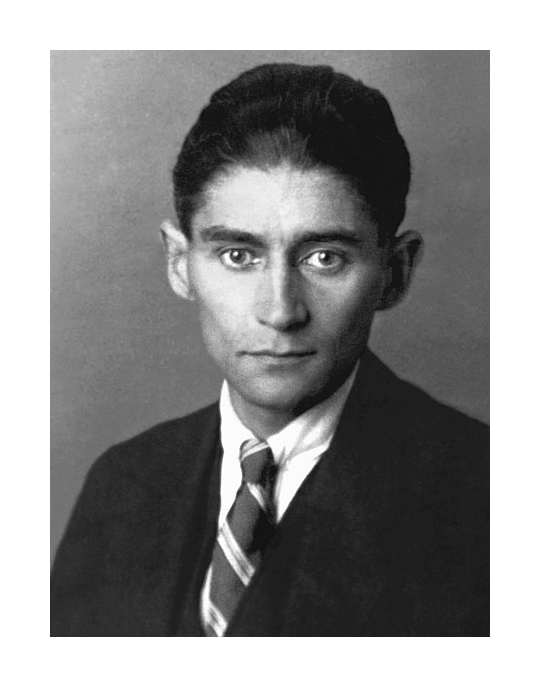
The Castle is a dystopian, absurdist comedy novel written by Bohemian-Jewish author Franz Kafka. The book was left unfinished in 1922 and Kafka died before he could finish it. The book was posthumously published in 1926 by his close friend and fellow Jewish author Max Brod, against Kafka's dying wish that all of his manuscripts were to be destroyed.
K.
The story opens with a man who goes by the name of K. K. is summoned by Count Westwest, a central, unseen figure who wields unyielding authority in the Castle and the society that surrounds it, to work as a land surveyor.
Shortly after arriving in the village from a long travel, K. decides to rest at a nearby inn. He is interrupted from his sleep by the son of a Castle steward, who chastises him for not having permission from the Castle to stay at the inn and demands him to leave, but later apologizes after learning of K.'s assignment.
After leaving the inn, K. meets a school teacher. The teacher gives K. an invitation to his home, due to K. stating he feels lonely and refuses to associate with both peasants and Castle officials.
The Assistants, Barnabas, and Frieda
K. tries to get to the Castle, but the convoluted roads combined with the freezing weather make it too difficult to get there on foot. After staying at another inn along the way, K. meets two men, Artur and Jeremias, who have been appointed by a Castle official named Galater to assist K. However, K. openly dislikes the two, finding them both clingy and annoying.
Later, K. meets Barnabas, a Castle messenger sent by Castle official Klamm, who hands K. a letter stating that he is to meet the village council chairman for further instruction. Upon Barnabas' leaving, K. asks to accompany him, assuming that he will lead him to the Castle. K. is instead led to Barnabas' house, where he meets his parents and two older sisters, Olga and Amalia
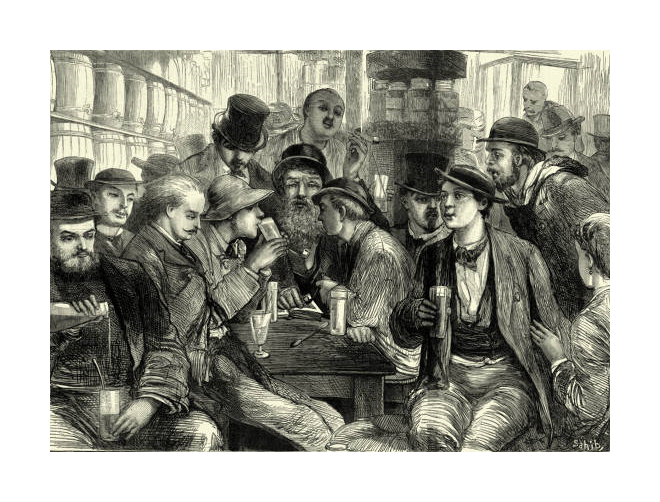
K. and Olga head to the Gentleman's Inn for some beer to bring back to Barnabas' house. There, K. meets Frieda, a barmaid and Klamm's mistress. Frieda expresses dissatisfaction with her job, having grown weary and tired with the behavior of Klamm's servants, and serving under Klamm. She quits her job, falls in love with K., and the two develop a romantic relationship. A young girl named Pepi, who works as a chambermaid at the inn, would later get promoted to Frieda's former position.
The Landlady and The Chairman
K. inquires the landlady of the Gentleman's Inn on how he can meet with Klamm. The landlady dismisses his question, claiming it is impossible to meet him. In addition, the landlady looks down on K., viewing him as a pompous, stubborn man who is ignorant of everyday life and culture in the village.
K. later meets the village council chairman, who reveals that K.'s. summoning as a surveyor was actually a mistake due to an internal miscommunication error within the organization. However, this error would be covered up by the organization to maintain the lie that the Castle makes no errors.
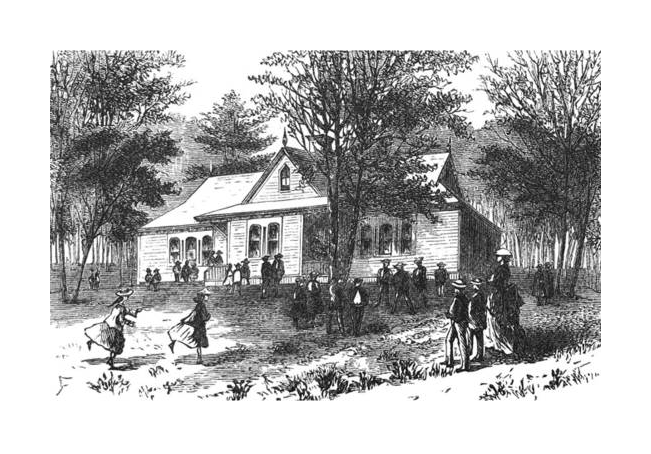
Later on, K. reunites with the school teacher at his house. The teacher tells him that the chairman is offering K. a temporary position as a schoolhouse janitor, as a sort of compensastion for the error. K. reluctantly agrees to take on the post.
K.'s New Job
K. begins his janitor work at the schoolhouse, where Frieda and his assistants also keep him company. K. is annoyed again by the assistants' antics and physically abuses Artur at one point. Frieda pleads with K. to treat them more nicely, but K. refuses.
The four of them later get in trouble when the teacher discovers that some firewood was stolen from the shed, which K. used to keep warm during the night without permission. The assistants snitch on K. and Frieda attempts to take the blame but ultimately admits K.'s wrongdoing. K. is then fired by the teacher, but K. refuses to leave. Enraged at their betrayal, K. fires the assistants and locks them outside in the freezing cold.
While working, K. meets a little boy named Hans, who he recognizes as a boy from an inn he visited earlier. Hans offers to help K. with his janitorial duties, under the condition that K. can visit and provide assistance to his sick mother in return. The two come to a mutual agreement and promise to help each other in need.
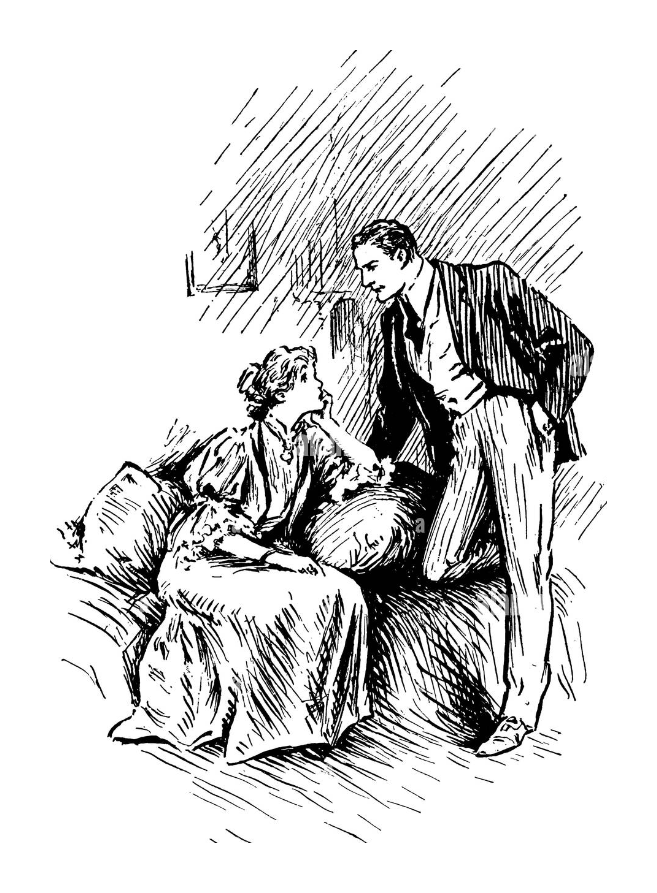
Amalia's Secret and The Truth About Barnabas
K. departs from the school and makes his way to Barnabas' house, hopeful to find a message from Klamm awaiting him, but finds that Barnabas is nowhere to be found. Amalia lambasts K., criticizing him for being ungrateful and unsympathetic to Barnabas. She also shows a disapproval of people from the Gentleman's Inn, including K.'s fiancée Frieda.
Olga has K. sit beside her and tells him about her family history. When Olga, Amalia, and Barnabas were children, their father used to work as a drillmaster at the village fire company. One day, the family attended a ceremony celebrating the donation of a new fire engine from the Castle. Some Castle officials were present, including a man named Sortini who noticed Amalia wearing an extravagant dress as he walked by.
The next day, Sortini sent his messenger to give a letter to Amalia, demanding that she come see him at once. According to Olga, the letter was full of "vulgar expressions" and Sortini sent it to reprimand Amalia for distracting him from his duties. Amalia then tore up the letter and threw it in the messenger's face.
Rumors about what Amalia did to the messenger began to spread at the Gentleman's Inn, with Frieda playing a central role in spreading the word. Soon, people began to despise the family, customers stopped going to Barnabas' father's business, and the family was forced to leave their house.
Barnabas' father tried to appeal to the Castle to pardon his family, waiting in the cold for long hours, but his efforts proved unsuccessful. Later in life, Barnabas decides to work as a messenger for the Castle in an effort to rehabilitate his family. However, the task of being a messenger is too exhausting for Barnabas and he would often complain his many grievances to Olga.
The Gentleman's Inn and Final Talk with Frieda
Olga and K.'s conversation is interrupted by a knock on the door. Anticipating Barnabas, K. is surprised to discover Jeremias standing outside instead. K. leaves the house and calls out to him. As K. prepares to hit him with a willow switch, Jeremias tells him that he and Artur have quit working for him, citing his cruelty and abuse, and Artur has reported him to Castle authorities. Jeremias also informs K. that Frieda has ended her engagement with K. due to his association with Barnabas' family, but K. dismisses this news.
Soon, Barnabas finally arrives from the Castle and tells K. that a Castle official named Erlanger wishes to speak with him at the Gentleman's Inn. When K. arrives at the inn, he crosses paths with Frieda, who is moving back to her old job. K. tries to win her over but Frieda dismisses his advances, calling him unfaithful for speaking with Barnabas' sisters, abandoning her at the schoolhouse, and for "destroying their happiness." It is later revealed that Frieda has formed a bond with Jeremias, the two having known each other since childhood.
Chatting with Erlanger and More Trouble
After a long, exhausting day, K. decides to take a nap before his scheduled meeting. When the meeting arrives, Erlanger tells K. that he is to make sure that Frieda returns back to her job and then dismisses him.
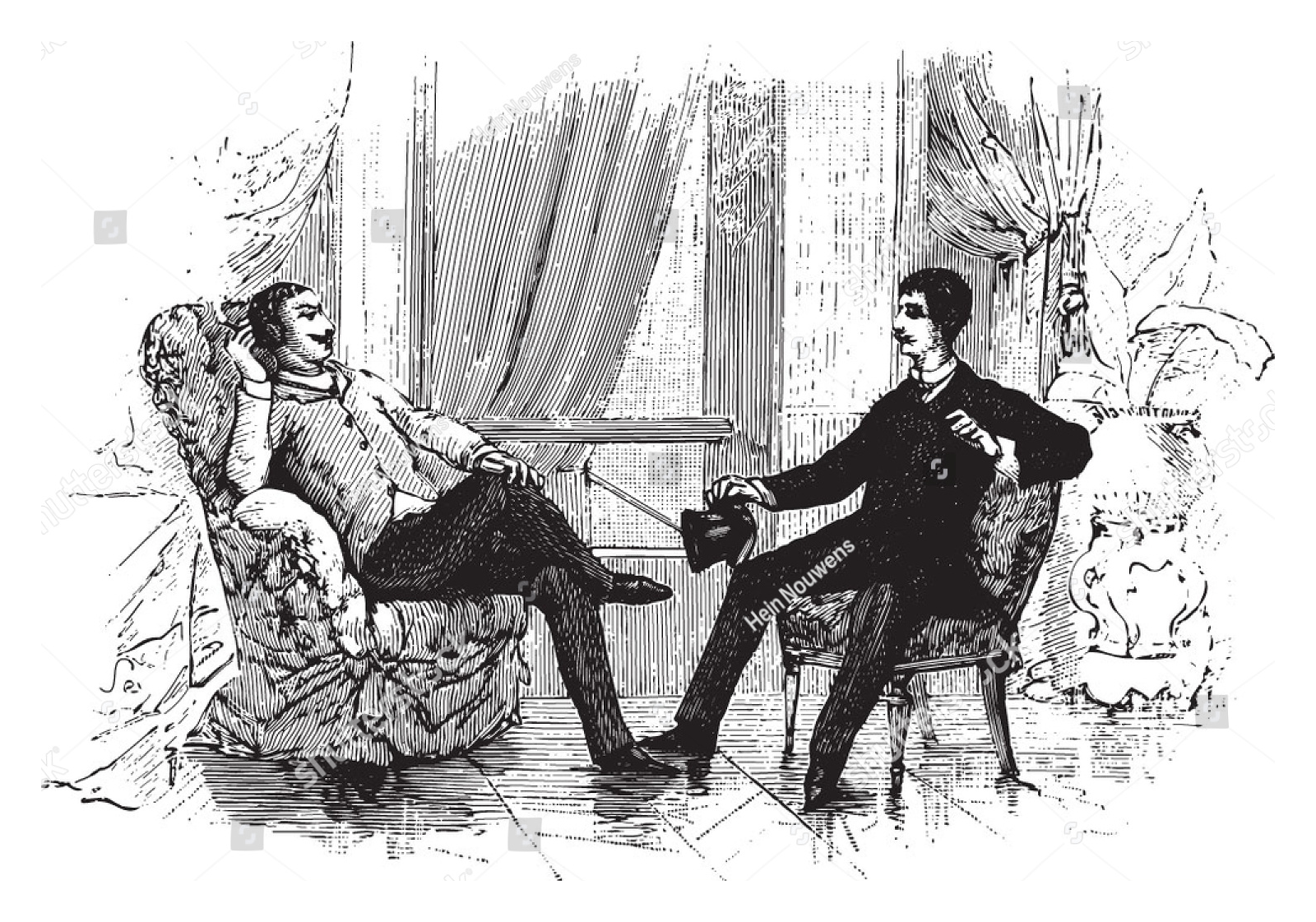
After leaving the room, K. decides to hang around in the corridor. He then notices that the gentlemen in their rooms have become unruly, ringing their calling bells and becoming impatient about something. Suddenly, the Landlord and Landlady come and rush K. away from the noise, the two later explaining to K. that only those with permission are allowed to be near the gentlemen's rooms. K. apologizes for his conduct, blaming his weariness, and asks to sleep in the taproom.
Frieda's True Colors and The Landlady's Dress
After waking up from his sleep, Pepi brings K. a coffee and conversates with him. Pepi blames K. for her demotion back to her old job as a chambermaid, expressing dismay towards the work, unsanitary conditions, and limited human interaction, while also nostalgically recalling her short tenure as a barmaid.
Pepi then tells K. that Frieda never actually loved him, but merely used him so that she can gain back the favor of Klamm's servants. K. refutes Pepi's allegations, asserting that Frieda would never act in such a manner, while also suggesting that Pepi may have misled herself into thinking she was suitable for Frieda's previous role.
Afterwards, the Landlady comes and invites K. to have a talk with her. The landlady took issue with an earlier comment K. made about her dress, who said it is too beautiful for a working lady like her to wear. The landlady takes offense of this and warns K. that she does not want to hear another opinion from him about her clothing.
The End?
After the talk with the landlady, K. reunites with Gerstäcker, a coachman who helped K. get to an inn earlier in the story. Gerstäcker asks K. for help with his horses, but K. deduces what he really wants is to "get something out of Erlanger." Gerstäcker takes K. to his house, where he meets his mother. The mother has K. sit beside her and says something to him, which K. can't seem to understand.
This is where the book concludes; the story ends mid-sentence. Franz Kafka left the manuscript unfinished in 1922 and ultimately gave up on finishing it. As for the book's ending, Kafka once told Max Brod how the story would conclude:
"K. continues to reside in the village until his death; the castle would notify him on his deathbed that his legal claim to live in the village was not valid, yet, taking certain auxiliary circumstances into account, he would be permitted to live and work there."
Review
The Castle was a fun and interesting read from start to finish, despite the unfinished "ending."
K. is a man of complexity and fascination, and the more that the story follows his path, the more intrigued I was in dissecting his character. When we are first introduced to K., he is shown to be very a isolated and reserved person. This can be seen in the initial chapters, where K. arrives in the village unaccompanied, keeps to himself upon reaching his first inn, and confides in the teacher about feeling isolated in his unfamiliar surroundings. As the plot progresses however, K. gradually demonstrates a degree of concern for others. Apart from his relationship with Frieda, he extends assistance to Hans in tending to his ailing mother and attentively listens to Olga recounting her family history, albeit displaying slight apprehension during these latter two encounters.
K. is depicted as stoic and focused on taking action. His primary objectives evolve several times throughout the narrative, shifting from trying to reach the Castle to maintaining his position as a school janitor. Despite facing numerous absurdities and challenges from Castle society, K. never vocalizes grievances about his circumstances and instead embraces the current situation. While reading this, I couldn't help but draw parallels between K. and the Greek mythical figure Sisyphus, a man who is forever cursed to push a rock to the top of a mountain, only to fail and start all over again.
K.'s relentless mission to accomplish his goals can also be applied to real life. Most of the time, we take our lives for granted and believe that we are in complete control of our destinies. However, unforeseen events can abruptly divert us from our aspirations at any time, leaving us vulnerable to the uncertainties of the future.
Overall, I would give this book a 8.4/10. I think this book is often overlooked and people will point to The Metamorphosis or The Trial as his greatest works, and while those books are good, I consider this book to be the greatest in Kafka's bibliography. The characters and settings captivate the reader, and the evolving situations K. finds himself in leave one pondering his next moves. However, it's regrettable that Kafka discontinued writing the book, and I would have given it a higher rating had it been completed.